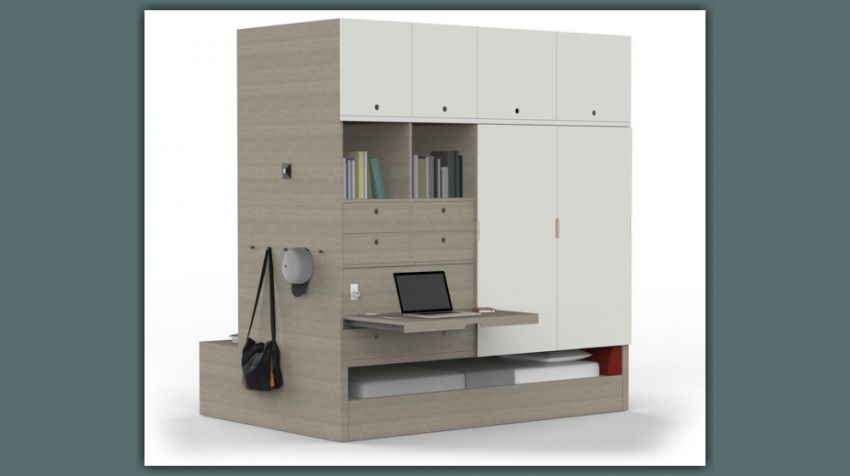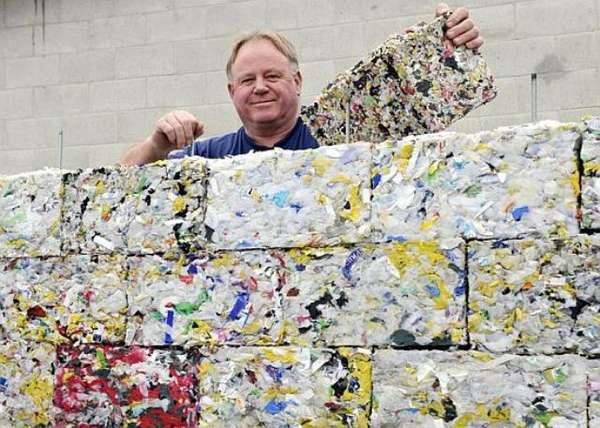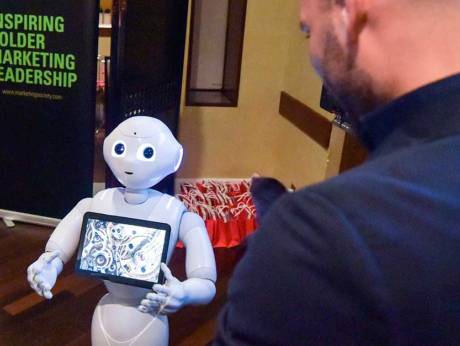Archive for the ‘habitats’ category: Page 123
Aug 2, 2016
Saudi Arabia plans to 3D print 1.5 million houses with WinSun’s construction 3D printing tech
Posted by Karen Hurst in categories: 3D printing, engineering, habitats
WOW — now that’s an engineering feat.
While Dubai is keen to become a 3D printing world leader with their Dubai 3D Printing Strategy, they are by no means the only Middle Eastern nation to look into this technology. Last week a delegation of Chinese WinSun officials traveled to Riyadh, the capital of the Kingdom of Saudi Arabia, to discuss construction 3D printing. Among others, the Chinese construction 3D printing pioneers were invited to 3D print up to 1.5 million housing units over the next five years.

Jul 30, 2016
Mars City Design wants to 3D-print prototypes of Martian habitats in the Mojave Desert
Posted by Klaus Baldauf in categories: 3D printing, habitats, space
Growing up in Jakarta’s polluted slums, Vera Mulyani loved building things. As a child, she dreamed of becoming an architect.
More than two decades later, Mulyani is a self-proclaimed “Marschitect,” and spends her time brainstorming how human life might be sustained on the red planet. After studying at École d’Architecture de Nantes in France and at New York Film Academy, in January 2015 she founded Mars City Design, a think tank of sorts aimed at developing blueprints for the first self-sustaining city on Mars.
Earlier this month, Mars City Design raised $30,382 on Kickstarter to realize the next phase of its mission: Within the next three years, the group wants to 3D-print three to-scale habitat prototypes of Martian cities at Reaction Research Society’s test area in the Mojave Desert.
Jul 29, 2016
Smart bricks would enable walls capable of generating electricity, clean water and oxygen
Posted by Shailesh Prasad in categories: biological, habitats, robotics/AI
A lot of things are becoming “smart” these days, but bricks might not be something you’d expect to be added to the list. On the way to buildings that act like “large-scale living organisms,” scientists at the University of the West of England (UWE Bristol) are developing smart bricks that would make use of microbes to recycle wastewater, generate electricity and produce oxygen.
Microbial fuel cells (MFCs), which will be embedded in the bricks to give them their “smart” capabilities, have proven handy in the past, with researchers demonstrating how they can be used to generate electricity from human urine, dead flies or just plain old mud.
“Microbial fuel cells are energy transducers that exploit the metabolic activity of the constituent microbes to break down organic waste and generate electricity,” says Ioannis Ieropoulos, professor at UWE Bristol’s Robotics Laboratory. “This is a novel application for MFC modules to be made into actuating building blocks as part of wall structures. This will allow us to explore the possibility of treating household waste, generating useful levels of electricity, and have ‘active programmable’ walls within our living environments.”
Jul 29, 2016
Smart bricks will transform how buildings work
Posted by Karen Hurst in categories: computing, engineering, habitats, sustainability
Smart bricks capable of recycling wastewater and generating electricity from sunlight are being developed by a team of scientists from the University of the West of England (UWE Bristol). The bricks will be able to fit together and create ‘bioreactor walls’ which could then be incorporated in housing, public building and office spaces.
The UWE Bristol team is working on the smart technologies that will be integrated into the bricks in this pan European ‘Living Architecture’ (LIAR) project led by Newcastle University. The LIAR project brings together living architecture, computing and engineering to find a new way to tackle global sustainability issues.
The smart living bricks will be made from bio-reactors filled with microbial cells and algae. Designed to self-adapt to changing environmental conditions the smart bricks will monitor and modify air in the building and recognise occupants.
Jul 27, 2016
How eco-friendly communes could change the future of housing — By Autumn Spanne | The Guardian
Posted by Odette Bohr Dienel in categories: business, complex systems, economics, energy, engineering, environmental, ethics, food, government, habitats
“An increasing number of US landowners want to build commune-style villages that are completely self-sufficient and have a low carbon footprint”
Jul 22, 2016
Let’s all move to Mars! The space architects shaping our future
Posted by Klaus Baldauf in categories: food, habitats, space travel, sustainability
We’ve had starchitects. Now we’ve got space architects. Oliver Wainwright meets the people measuring up the red planet for inflatable homes and farms made of moondust concrete.
Jul 20, 2016
Voila! Ori Robotic Furniture Can Change Your Living Room to a Home Office in Seconds
Posted by Karen Hurst in categories: habitats, robotics/AI

With the need for smaller more cost effective living spaces in mind, Ori Systems has developed a line of modular furniture that makes the most of the space that is becoming more and more of a premium. And, though not yet applied outside the residential market, the technology has clear applications for maximizing precious office space as well.
The Ori in Ori Systems comes from the Japanese word origami, which makes a lot of sense when you see the furniture as it transforms a room with just the push of a button. And in so doing it can quickly transform a small living space with a variety of possible configurations. See the video below.
Jul 19, 2016
Time to get a robot to do the selling
Posted by Karen Hurst in categories: habitats, robotics/AI
Here’s a concept; you’re next open house showing is conducted by a robot.
UAE marketers get a first glimpse of the humanoid robot Pepper.
Jul 19, 2016
Why the Cost of Living Is Poised to Plummet in the Next 20 Years
Posted by Shailesh Prasad in categories: economics, education, employment, food, government, habitats, health, robotics/AI, transportation
Powered by developments in exponential technologies, the cost of housing, transportation, food, health care, entertainment, clothing, education and so on will fall, eventually approaching, believe it or not, zero.
People are concerned about how AI and robotics are taking jobs, destroying livelihoods, reducing our earning capacity, and subsequently destroying the economy.
In anticipation, countries like Canada, India and Finland are running experiments to pilot the idea of “universal basic income” — the unconditional provision of a regular sum of money from the government to support livelihood independent of employment.
Continue reading “Why the Cost of Living Is Poised to Plummet in the Next 20 Years” »

















